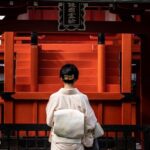
This is a very interesting topic because ‘happiness’ is one of the most subjective things in the world. What makes you happy might not necessarily make me happy.
One thing that is certain, however, is that, in countries with capitalist political economies, the goal of every man, woman and child is to spend their lives trying to make money. From a young age, we go to school with the purpose of getting good grades so we can get into a good university. We go to university so we can get a good degree that will land us a good job that pays a high salary. It’s not so outlandish to say that our purpose for living is to get money.
Therefore, if our purpose for living is to make money, doesn’t that mean attaining it is guaranteed to bring happiness? Personally, I don’t think so.
Countless studies have been conducted in various countries with various political economies and with citizens who earn different amounts of money. According to these studies, countries like Cuba, a communist country, have a much greater population of happy citizens than Japan, a capitalist country.
One question people can ask is, are the wealthiest people in a country happier than the poorest people of the same country? It’s difficult to answer this question absolutely, but suicides and depression have been observed to occur more often in people with higher incomes. One of the reasons could be that a higher salary tends to come with a more stressful job.
On the other hand, buying a new TV or an expensive car could cause people to feel ecstatic. It’s no secret that you need a lot of money to afford these things, so by that logic, money has literally bought those people happiness.
However, if you do get your share of material goods, does that necessarily keep you happy for long? Do you remember being a child just before Christmas? It’s common for children to feel the most excited the day before Christmas, not on Christmas day itself. For someone who plays video games, the time when I’m most happy is during the challenge, not once I’ve completed it.
It might be nice to dream about having hundreds of millions of yen, but after you’ve bought everything you want, you no longer have anything to dream about.
To conclude, my answer to the question ‘’Can money buy happiness?’’ is yes, but only artificially. If I won a million dollars in the lottery, I think I wouldn’t be able to stop jumping. Of course, we need money to live and to have enough that we no longer have to worry about our earnings is hardly a bad thing. However, in that situation, the one thing that worries me is the question ‘’what’s next?’ It’s in our nature to try and push our limits and dream of new possibilities. The skyscrapers of Tokyo are a perfect example of the potential of the human race. Simply having everything handed to us on a silver platter might make us happy at first, but without a new dream or challenge, I don’t think that happiness would last.
Alex
Vocabulary
outlandish (adj.) – very strange or unusual: extremely different from what is normal or expected
attain (v) – to succeed in getting or doing (something)
ecstatic ( adj.) – an extreme feeling of happiness, joy or excitement
artificially (adv.) – to do or make something unnaturally
handed to (someone) on a silver platter (idiom) – to get something without any effort
英語学習をフルサポート!
マンツーマン&コーチングの英会話教室
























